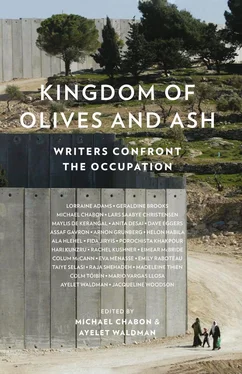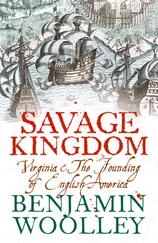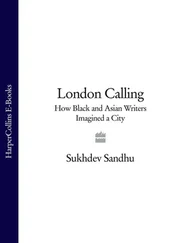On April 18, 2016, the day Ahmed’s verdict was expected, his family gathered nervously at Jerusalem’s Central Court. His thirty-two-year-old mother, Maysoon, sat rigidly on a bench, meticulously dressed in a gray headscarf, a long navy skirt, and a turmeric-yellow jacket. As she waited for the guards to bring her son, she said she was still in a state of disbelief that Ahmed could have been involved in the stabbings. “I didn’t believe it then and I don’t believe it now,” she says, shaking her head. “I can’t. I can’t. The first video, it shocked me. He’s a small, small kid. Shy. Always with me in the kitchen, or playing with his pet doves.” She gave a wan smile. “He always wanted to bring them inside, to fly around the house. I would complain to him, ‘They make a mess!’ but he would just smile and say, ‘Mama, you know I always clean it up.’” She inclined her head to a nearby bench where Ahmed’s cousins waited to catch a word with him on his way into the courtroom, since they were not allowed to visit him in detention. “They want to tell him that they are taking care of his birds,” his mother says. “They know how much he cares about them.”
Ahmed, small and delicately built, arrived flanked by two juvenile justice counselors. He looked overwhelmed and near tears when he saw his family. He tugged nervously at his green hoodie as his mother embraced him, and managed a brief grin for his cousins. Tsemel, her black attorney’s gown slipping casually off one shoulder, ruffled his hair. “How are you, kid?” she asked in Arabic, before his counselors ushered him away, into the courtroom.
Inside, the three judges who had heard the case confirmed a postponement in their verdict and ordered Ahmed returned to the juvenile facility while they deliberated further. Tsemel emerged from the closed hearing taking some small measure of optimism from the delay. “I hope they have debates. I hope they have doubts. I hope we had a strong enough argument to make them hesitate.” On the other hand, she said, Israeli public opinion remained overwhelmingly against any hint of leniency. Newspaper reports referred to Ahmed “the terrorist” and “the stabber” even though he had not used his knife. “At the trial, the cross-examination and the witnesses were very hostile.” The prosecution had asked for the maximum twenty-year sentence.
But Ahmed’s family was relieved that he would remain at the juvenile facility, where he could attend class and have regular visits with his parents, for at least a few more weeks. They said good-bye in the courthouse hallway as the counselors escorted him away.
At the Manasra compound, the family still struggles to understand how the two cousins became so radicalized. Because he is now a law student at al-Quds University, the boys’ uncle Ahmed has become the family’s spokesman during his nephew’s court proceedings. But very often, he admits, he is at a loss for words. “They did normal things kids do,” he says. “Of course, we don’t know what they see on the computer, what they read on the Internet.”
His brothers, he says, are no more or less radical than most Palestinians of their generation: “Every family has an activist.” As a young man, he took part in demonstrations and was jailed for seven years for throwing a Molotov cocktail at soldiers. Two others among the fourteen Manasra brothers also were jailed for throwing stones during the first intifada in 1987. “But we were men when we did these things,” he said. “It’s painful that we’ve reached this point—that children are involved. This is not the business of children. Not one Palestinian parent wants this. Not one. The only people who benefit are the greedy, rotten politicians who want to stay in their chairs. Calm isn’t in their interest.”
He gazes through the fluttering curtains at the view of his divided city and recalls a time when Jerusalem’s children did not encounter one another as enemies. “There was a park in West Jerusalem—the Bell Garden,” he says. “At Ahmed’s age, I would go there all the time, to play with my Israeli friends.”
Now that is impossible. Even as an adult, he feels insecure in Jewish neighborhoods. “Before, if an extremist tried to assault you, other Israelis would step in and break it up. Now, if something happens—a car accident, anything—it will be misunderstood. Everyone will attack you, because you are an Arab.”
He says every child in the family has been traumatized. Hassan’s seventeen-year-old brother Ibrahim was beaten and arrested the day of the stabbing, when heavily armed police swarmed the compound. A policeman claimed Ibrahim tried to grab his weapon. Since the police shattered the security camera that would have shown what occurred, Ibrahim had no way to prove his assertion that he had not. He was struck repeatedly with the butt of a rifle and suffered broken ribs and facial contusions and returned home only after almost five months in prison. Though he has returned to classes at his technical school, he can’t concentrate. His younger sister, who is ten, witnessed the beating and did not speak for weeks after. Another of the cousins, age five, didn’t leave the house for more than four months.
It was three weeks, Ahmed said, since Israeli authorities had finally offered to return Hassan’s body to his family. Both Jewish and Islamic custom demands the swift burial of the dead, but the Israeli police have recently made a practice of retaining the corpses of Palestinians killed while committing terror attacks. They had retained Hassan’s corpse for four months before offering the return of the body under stringent conditions: a night burial with only uncles and cemetery staff present; everyone to submit to a thorough security check beforehand. Hassan’s family accepted. But they asked that, since the Muslim custom is to carry the body from the home to the grave wrapped only in a shroud and often with the face visible, Hassan’s body not be brought home frozen.
On the appointed date, the Israeli authorities arrived with the body at midnight. “When he arrived, he was stiff as that table,” said his uncle, tapping the mahogany surface in front of him. “His face was blue. How do you say good-bye to an ice cube?” The family refused to accept Hassan in that condition. The police took his body back to the freezer.
“Hassan’s soul rests in peace, and may God forgive him,” Ahmed said. “A body is a body. At the end of the day, what’s left is the pain of those around him.”
On December 17, 2015, at Jerusalem’s Kotel, Na’or Ben Ezra was called to the Torah as a bar mitzvah.
On May 10, 2016, Ahmed Manasra was found guilty of two counts of attempted murder. He was sentenced to twelve years in prison and fined 180,000 shekels to be paid directly to the victim.
Hassan Manasra’s thawed body was finally returned to his family for burial seven months after his death.
ONE’S OWN PEOPLE
JACQUELINE WOODSON
IN AMERICA, BROWN BODIES WERE FALLING SO HARD AND SO FAST IT was hard to look away. The faces of young brown men popping up on social media platforms, beautiful brown women sending selfies into the universe long after they had been taken from it at the hands of those badged to protect them, little brown boys looking innocently at us from middle school photos. In the heat and energy of this, I boarded a plane. For Israel-Palestine.
For many weeks before I was to travel, I came to tears often. I was afraid not only because of the daily horrors moving across my computer screen, but because my partner, a physician, had visited Hebron four years before and I had been terrified that she wouldn’t return to us, that I would be left not only with two young children but having to live a life without her. That I would be left raising a beautiful brown boy in a country that hated its brown boys. A brown girl in a world that didn’t see her. I cried because years after my partner’s journey, we would be traveling to Palestine together, our children at a summer camp in New Hampshire, miles away from family, and, I would come to understand, a world away from anything they could even begin to comprehend at this point in their lives. Because even while we caution our brown boy about his behavior when addressing cops (eyes up, hands visible, never run), and our brown girl about how to walk into a room with her brown body (cover it, please!), I know now that there are mothers in Hebron who are waiting for their children to come home. I was in Hebron and watched soldiers close all checkpoints as two small boys sharing a bicycle stood outside, crying that their mothers didn’t know where they were. Please let us go home , they said again and again, their words falling into the dust. I was with a Palestinian activist named Issa Amro and my partner, Juliet. The soldiers, no more than young people themselves, their guns slung across their torsos, looked on or away, their young faces set into the work they were drafted to do for three years. The children, still holding tight to their bicycle, continued to beg. There was nothing we could do.
Читать дальше











